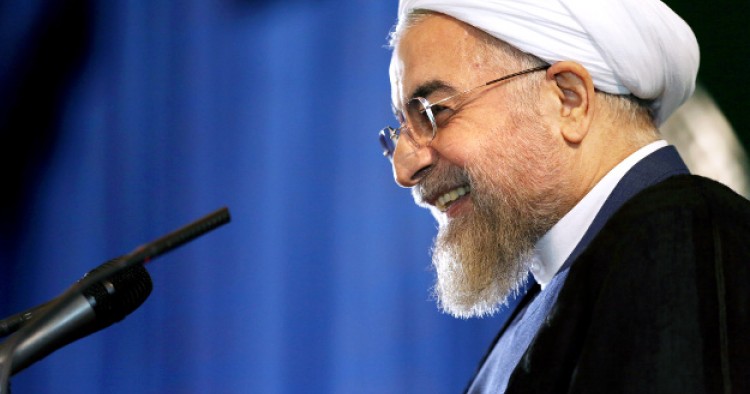This article first appeared in The National Interest.
After a year of hesitation, Iranian president Hassan Rouhani is signaling his readiness to reach out to Tehran’s chief regional rival—Saudi Arabia. Last week, a top official was sent to Riyadh; he was the most senior Iranian visitor to the country since Rouhani’s election in June 2013.
Despite the mutual animus of recent years, the Saudis look to be receptive to Tehran’s overtures. Events in the region, particularly the consolidation of the Islamic State in Iraq and Syria, are undoubtedly the key catalysts behind the timing of such a potential détente.
Whether this all-important process of détente can be put in motion depends on a host of factors, not least Rouhani’s ability to first muster a consensus on the Saudi question in Tehran. Only then can the eager Iranian president set out to alter the trajectory of relations between the two pivotal Middle Eastern countries.
A long-overdue visit
Regime hardliners in Tehran, driven not only by Shia Islamist ideology, but also sheer power, have a long record of fighting to preserve the status quo. That is true both of the domestic order as it is of Iran’s relations with the outside world. And for this arm of the Iranian regime, enmity toward Saudi Arabia, the bastion of Sunni Islam, has over the years morphed into a cherished canon.
Rouhani might finally take this bull by the horns. He has been very explicit in recognizing Saudi Arabia as a special foreign-policy test for Tehran. During his election campaign, he made a point of signaling out the troubled relations with Riyadh as an untenable strategic liability for Tehran.
And yet in his first year in office, he failed to jumpstart relations as he had pledged. Breaking the orthodoxy in Tehran on the Saudi question proved a steep climb. Against this background, last week’s visit to Riyadh by Hossein Abdollahian, a senior Iranian official, had an air of inevitability and promise to it. The timing is perhaps the most instructive detail.
Tehran and Riyadh have revealed precious little about the content of the talks between Abdollahian and Prince Saud Al Faisal, the Saudi Foreign Minister. But the trends of the last few weeks suggest this was more than just a token summit.
Continue reading at The National Interest.
The Middle East Institute (MEI) is an independent, non-partisan, non-for-profit, educational organization. It does not engage in advocacy and its scholars’ opinions are their own. MEI welcomes financial donations, but retains sole editorial control over its work and its publications reflect only the authors’ views. For a listing of MEI donors, please click here.












